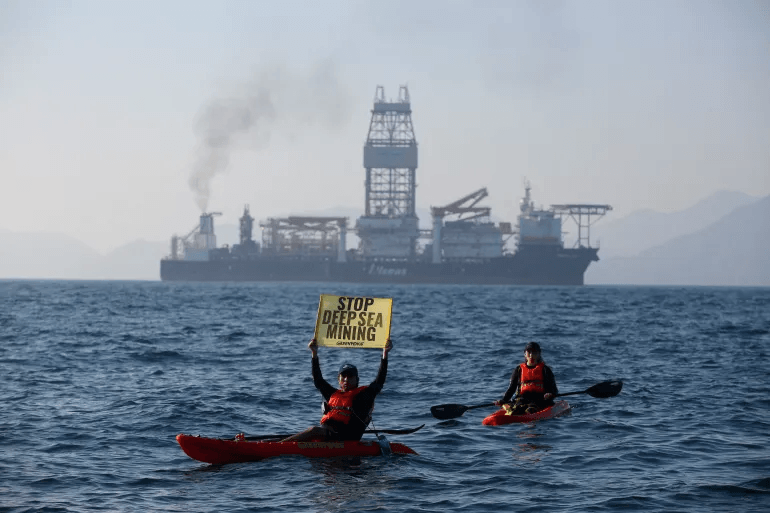
Nauru is a small Pacific island 4,000km (2,485 miles) off the coast of Australia. It is so small, it has no capital city and just one road. But its roughly 12,000 inhabitants are at the heart of a conflict over mining the world’s sea beds for precious minerals.
The clash pits differing views about how to tackle climate change. Nauru’s government sees rare earth metals as a key component in the green energy transition. However, conservationists argue that mining the ocean floor will threaten vital marine ecosystems.
Deep-sea mining involves hoovering poly-metallic nodules – resembling potato-sized nuggets – off the ocean floor and piping them up to vessels on the water’s surface. These nodules contain copper, lithium and other treasured elements.
Advocates for the controversial practice contend that terrestrial mining will soon fall short of the demand for rare earth metals, particularly cobalt and nickel, which are needed to power “green” storage batteries and ensure a shift away from fossil fuels.